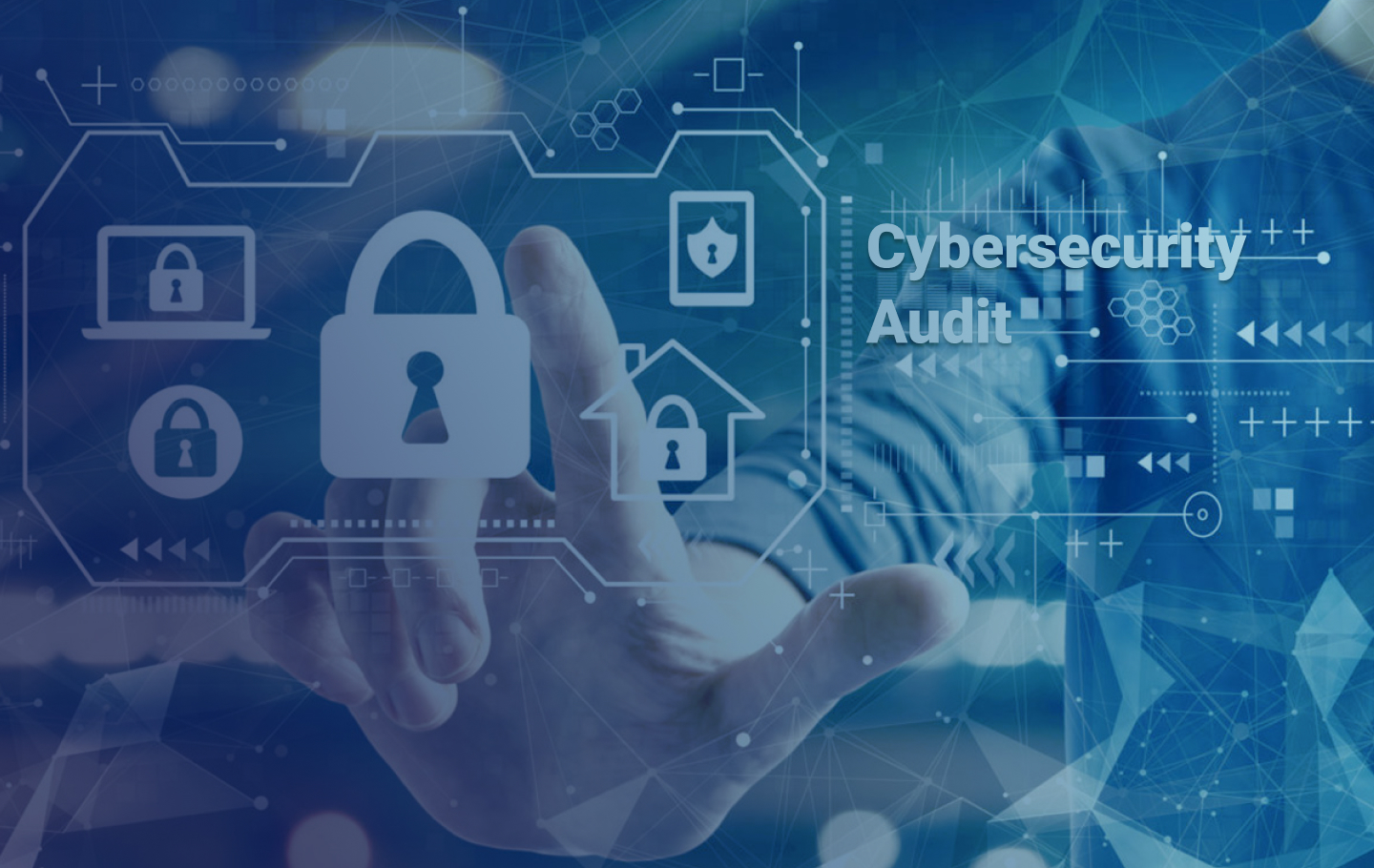If you run a data-driven business, you’ll need a cyber security audit at some point. Audits help solve security issues while keeping your company compliant with laws and regulations. These evaluations work to control your assets and improve your defenses against data breaches and other threats. By probing your cybersecurity policies, standards, and guidelines, auditors identify flaws to rectify in any part of your infrastructure.
Below we discuss everything about cyber security auditing: What it means, what the purpose is, and why you need it.
What is a Cybersecurity Audit?
A cyber security audit is a complete analysis and review of each cybersecurity aspect related to the IT infrastructure of your company, from your policies and procedures to your security controls and action plans. These assessments are designed to detect every single vulnerability posing a threat to your business.
Audits highlight weak spots, such as backdoors used by cybercriminals for common types of scams. The primary goal of cyber security auditing is two-fold
- To achieve compliance with regulatory entities and validate certifiable standards in your industry
- To provide your managerial staff, customers, and vendors with an in-depth assessment of your company’s security posture
What’s the Main Purpose of a Security Audit?
Many people wonder what the main purpose of a security audit is. If your company aims to get its data protected, cyber security and internal audits go hand-in-hand. The primary purpose of any security audit is to understand how much data you have and how it’s protected..
It offers insights into which datasets are critical and the protocols you need to protect them. A network security audit helps you understand every cybersecurity risk threatening your company. These assessments improve your IT team’s prowess in the face of a cyberattack.
Does your Organization Need a Cybersecurity Audit?
If your company wants to avoid a data breach, it needs cyber security auditing. These audits help your business comply with legal, regulatory, and contractual cybersafety requirements.
Once your organization’s cybersecurity practices are audited, you’ll better understand your risk management abilities. Cybersecurity audits increase your reputation as a data holder too.
You get to learn about risk governance and the importance of training for your employees. You also ensure continual operations while optimizing your organization’s best crisis management protocols.
Remember, hackers target more than system vulnerabilities—they also exploit cybersecurity processes, procedures, and employees. A cybersecurity audit offers a bird’s eye view of your company’s cybersecurity weaknesses, threats, and risks, as well as the impact of each.
What are the Benefits of a Cybersecurity Audit?
When you perform a cyber security audit, you can improve your systems and address any weaknesses. Here are some of the most visible benefits:
- Identify gaps in your cybersecurity
- Understand weak spots and how to address them
- Compliance with laws and regulations
- Enhanced reputation
- Testing inherent controls of your system
- Improve cybersecurity procedures
- Raise cybersecurity awareness among employees
- Reassure clients, vendors, and business partners about data safety
- Better system performance
- Enhance and update cybersecurity processes
What Does a Cybersecurity Audit Cover?
To keep your data safe, it’s best to understand what a cyber security audit covers. The scope of these evaluations detects vulnerabilities and risks throughout your IT infrastructure. Auditors typically address the following :
Data Security
A data security audit begins with a complete review of the access control of your network. Auditors also notice if you use any form of encryption, the protection of your data at rest, and how safe your data transmission is.
Operational Security
A cyber security audit takes a complete look at all the security policies you have in place. It also examines every procedure, process, and control in your data loss prevention strategy.
Network Security
Auditors review all network controls and security protocols. They let you know if your security operation center is working efficiently. They also check whether your antivirus is configured correctly and if any other security monitoring tool is doing what it’s supposed to do.
System Security
At this stage, auditors ensure your data’s hardening process is working correctly. They also check that security patches are updated and privileged access is managed effectively.
Physical Security
In the last stage of a cyber security audit, auditors check the state of all physical devices used to access your network. They analyze disk encryption, all forms of role-based controls, and the use of MFA or biometric data.
Internal vs. External Cybersecurity Audits
If you want to perform a cyber security audit, your IT department can typically do it. However, there’s a slight chance they won’t have all the tools to conduct such a task properly.
That’s why it’s best to work with a third party for a deep dive inside the inner workings of your network and systems. The only notion of placing cyber security and internal audit in the same sentence is to cut costs. Time also plays a significant factor since audits handled in-house are typically quicker.
Outsourcing can be quite expensive if you run a small company with no IT department. But you can still learn how to audit the cyber security of your network. That said, external auditors offer an objective and impartial look at your systems, skillfully identifying weaknesses and issues.
They’re also the harshest critics since their unbiased analysis can uncover every vulnerability in your cybersecurity. In the end, they’ll offer complete reports with detailed solutions to every problem they find.
While not the most optimal metric, the choice of internal vs. external audits finally boils down to budget. The internal audit role in cybersecurity is to analyze and fix a system the IT team is familiar with.
However, this can lead to bias or even overlooked aspects of cybersecurity that have the potential to affect the company. External auditors, however, have no qualms letting you know exactly where your system’s weaknesses lie. You can make a choice based on the needs of your company.
Best Practices of a Cybersecurity Audit
A cyber security audit typically has seven processes to ensure success:
Define the Scope of the Audit
For an optimal cyber security audit, list your assets and group your sensitive data. You also need to know your hardware stock: How many devices are available and operative? After the roundup, define the security perimeter for everything. That way, auditors will know what to include in the auditing process and what to leave out
Share Your Resources with the Auditors
Your auditors need to know all the members of your team, especially those who work in sensitive areas. To perform a more detailed cyber security audit, the assessment team must know every point of contact with your system.
They need to understand how every person works, the tools they use, and how they access your network. This is how auditors get a better understanding of your cybersecurity policies.
Review your Compliance Standards
Before going through the motions of a cyber security audit, you should look at your compliance requirements. These rules and regulations vary depending on the state or country you’re in. Your auditors need all details of your compliance. If you don’t have them updated, they’ll offer a walkthrough to ensure your business aligns with any industry requirements you perform.
Be Open About All Details of Your Network Structure
When business owners ask what the main purpose of a security audit is, it all comes down to full disclosure of security gaps in their companies. Your auditors need a complete view of your network’s structure.
They should have access to the IT team that supports the auditing team in any procedures to identify vulnerabilities. Once they find backdoors or gaps in your infrastructure, they can figure out if you’re protected against them or not.
Make Sure You Understand the Vulnerabilities of Your System
Most business owners are unaware of the risks they’re exposed to before running a cyber security audit. An audit is essentially an eye-opener. You get to see every problem with your defenses (if any). You’ll understand the risks faced online and the laws and regulations that apply to your business. It also helps to let auditors know exactly what portions of your network need protection.
Evaluate your Cyber Risk Management Performance
A cyber security audit offers a complete overview of every vulnerability in your system and how hackers can exploit them. This helps you update your cyber risk management plan. If your current defense policies are ineffective, it’s time for an update. You can install improved scanning tools and implement a new DLP strategy.
Prioritize Responses
Once the cyber security audit is finished, you can decide what to do next with an improved sense of priority. The audit identifies what part of your network is more exposed and offers solutions to solve these issues. By prioritizing the more pressing threats, you’ll ensure your company’s data is safe while averting most cyberattacks.
Cybersecurity Audit Checklist
A cyber security audit checklist includes the basic requirements to be assessed by the auditors. Most checklist items are tailored to each company depending on the industry and size of their business.
However, a basic set of categories are included in every audit. These are the essentials you need to request regardless of your niche:
- An inventory of all hardware assets
- An inventory of all software used in your company
- Tools for ongoing vulnerability management
- Controls for administrative privileges
- Security configuration for hardware and software in all devices, such as laptops, terminals, servers, and smartphones
- Schedules for maintenance and monitoring, as well as audit logs
- Email and browser protection
- Malware defenses
- Controlled access to network ports, including all protocols and server data
How Often to Perform a Cybersecurity Audit?
Once you learn how to audit your cyber security, you need to answer another question: How often should you run these audits on your systems? The answer is tricky. It depends on the size of your company and budget.
Large multinationals perform cyber security audits monthly since they handle large data hubs. A middle-size company requires these audits twice a year, depending on the volume of its operations. Small businesses only need a yearly audit.
Final Thoughts
As a business owner, you must understand the risks and threats on the internet. Your network isn’t exempt from malicious actors. Cyber security audits are designed to help you understand your system’s vulnerabilities. Periodical audits can help increase the security of your data while improving your reputation with customers and business partners.
A proper cyber security audit focuses on data and ongoing operations. It highlights the weak portions of your infrastructure and network. Security audits help improve security with detailed reports stating what needs to be improved. Audits take a look at all your assets and ensure your security processes work efficiently with recommended updates and rectifications.



Thanks for sharing this blog related to cyber security audit